|
|
|
Schooling ourselves about HIV on World AIDS Day
|
|
Saturday is World AIDS Day. It’s the perfect opportunity to educate ourselves about the latest research on HIV prevention, treatment and stigma. In today’s The Conversation Canada, we’ve got a companion piece to our story earlier this week tied to World AIDS Day. Three researchers – from the University of Victoria and the University of British Columbia – urge us to recognize that negative
judgment and feelings about HIV are tangled up with racism, transphobia and homophobia.
Toronto’s Gay Village serial killings, meantime, have renewed simmering tensions between the city’s LGBTQ community and police. Canadian academic Carolyn Strange of Australian National University provides an interesting history of the relationship.
Another academic at an Australian institution, Māori Dominic O'Sullivan of Charles Sturt University, writes today that New Zealand has forged a very different relationship with its Indigenous population than Canada on the “duty to consult.” Māori elect members to parliament from designated Māori constituencies – and the right to participate offers much more than consultation does here.
The Māori are also blazing a trail when it comes to environmental protection of Indigenous areas, says Courtney Mason of Thompson Rivers University. Mason writes that as local communities encounter an ever-growing number of barriers to food security, including climate change, it’s increasingly clear that Indigenous lands must be protected from development.
Finally, what’s the role of educators when sexual violence happens in our schools? Jen Gilbert of York University writes that if educators start listening to students, they may hear new stories of masculinity and femininity echoing through school hallways.
Five compelling reads for you as we head into the weekend. Enjoy!
|
|
|
Our featured stories
|
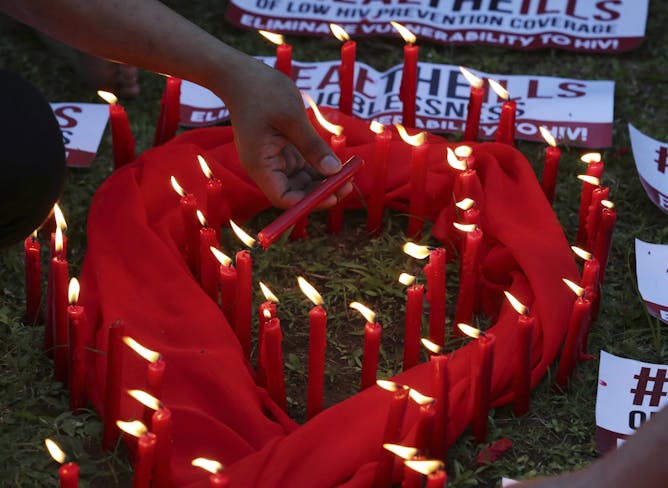
People living with HIV/AIDS all over the world are still struggling with stigma due to perceptions of the virus as dark and shameful. Here a Filipino man lights candles at a World AIDS Day even in Quezon city, Philippines in 2016.
(AP Photo/Aaron Favila)
Nathan Lachowsky, University of Victoria; Gbolahan Olarewaju, University of British Columbia; Heather Armstrong, University of British Columbia
Researchers from the BC Centre for Excellence in HIV/AIDS share the latest research on HIV prevention, treatment and stigma.
|
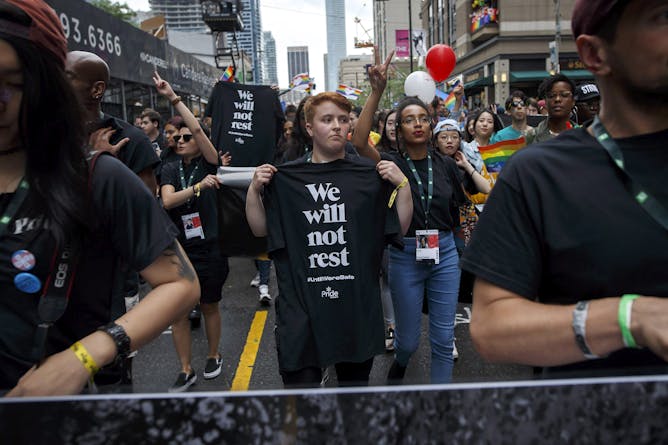
A tribute to those lost from the community, people march with We Will Not Rest #UntilWe'reSafe t-shirts during Toronto Pride parade on June 24, 2018. Many feel the recent killings in Toronto might have received more attention had the victims not been homosexuals or racialized men.
The Canadian Press/Cole Burston
Carolyn Strange, Australian National University
The murder investigation of missing gay men in Toronto has raised questions of inequalities. A long view of police relationships with LGBTQ communities in Canada show that much progress has been made.
|
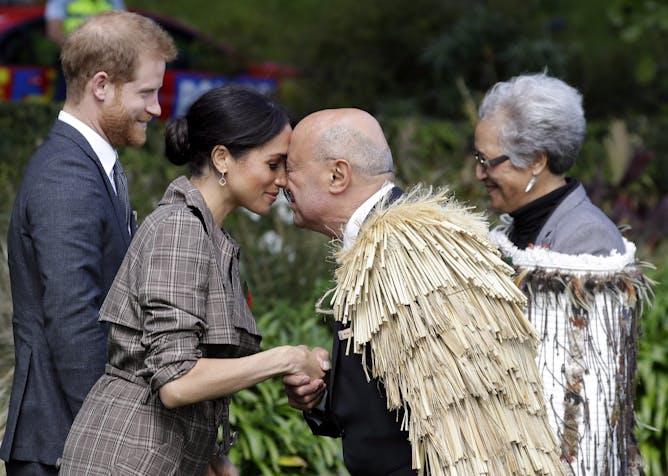
Prince Harry and his wife, Meghan, receive a “hongi,” a traditional Māori welcome, from Māori elders on the lawns of Government House in Wellington, New Zealand in October 2018. In New Zealand, Māori elect members to parliament from designated Māori constituencies – and the right to participate offers more than the ‘duty to consult’ in Canada.
(AP Photo/Kirsty Wigglesworth)
Dominic O'Sullivan, Charles Sturt University
In New Zealand, sovereignty is disputed, but the Maori case for sharing it with settlers underscores the limits of First Nations consultation in Canada.
|
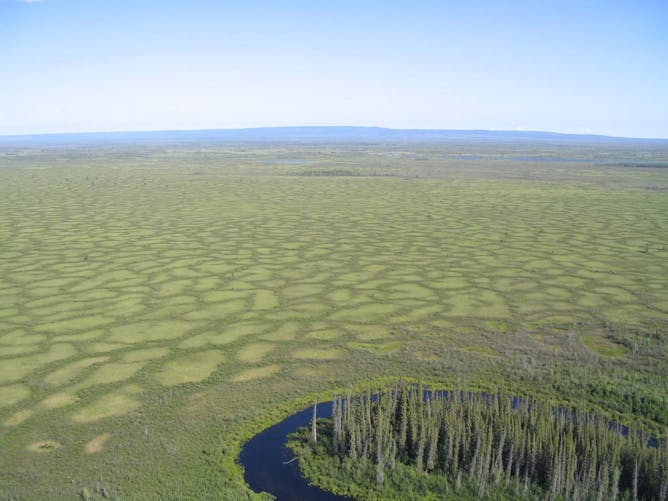
Edéhzhíe is located in the Dehcho region of the Northwest Territories. It is the first Indigenous protected area designated in Canada.
Government of Northwest Territories
Courtney Mason, Thompson Rivers University
Indigenous conservation practices are more holistic and inclusive of humans and their knowledge.
|
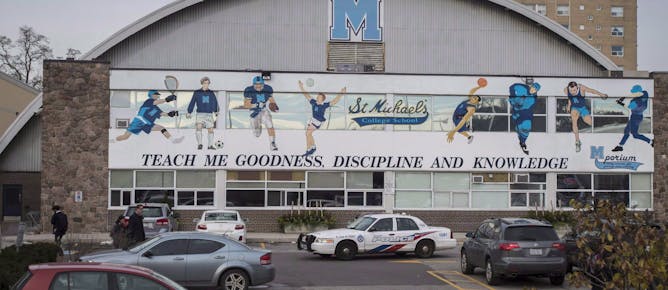
Toronto police respond to an incident at St. Michael’s College School, in Toronto on November 19, 2018.
THE CANADIAN PRESS/Tijana Martin
Jen Gilbert, York University, Canada
A single solution can't magically erase gender-based violence in schools, but if we start listening to students, we may hear new stories of masculinity and femininity echoing through school hallways.
|
Health + Medicine
|
-
Alan Stevens, Texas A&M University ; Carole White, University of Texas at Austin; Marcia G. Ory, Texas A&M University ; Sandhya Sanghi, Texas A&M University
November is National Family Caregivers Month; did they get your attention? If not, you are not alone. Family caregivers are overlooked by the health care system, and they are burning out. Here's why.
|
|
Education
|
-
Alana Blackburn, University of New England
Many school music teachers aren't trained recorder players. And cheap and badly made recorders are often sold in discount stores. But this an instrument with a fine musical pedigree.
|
|
Science + Technology
|
-
Daisy Wang, UNSW; Jared Cole, RMIT University
The energy required to power the massive, factory-sized data centres that computers rely on already consumes 5% of global electricity. And that energy load is doubling every decade.
|
|
| |
| |
| |
| |
| |
| |
|
|
|
|
|
|
|